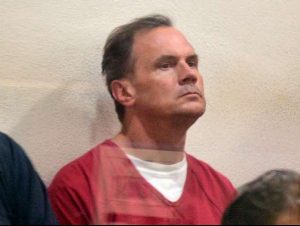
Surei Sasai, an 89-year-old Buddhist monk from Japan, is at the forefront of efforts to restore Buddhism in India, with a focus on eliminating caste-based discrimination that has historically marginalized many communities. Last month, he held a large-scale Buddhist conversion ceremony in the central Indian city of Nagpur that attracted some 15,000 converts and 15 Japanese individuals aspiring to monk-hood. Sasai, whose full monastic name is Bhadant Nagarjuna Arya Sura Sasai, is seen by many as a successor to India’s great lawmaker and champion of the Dalits, Dr. B. R. Ambedkar.
During the ceremnoy, which took place from 10–12 October, Sasai declared his commitment to following the Buddhist path, a statement echoed by the participants. “I mustn’t ask for any favors, such as being able to enter paradise,” Sasai stated. “My duty is to guide people to the law of Buddhism.” (The Japan Times)
Born in 1935 in Niimi, Okayama Prefecture, Japan, Sasai faced significant personal challenges in his youth, including an obsession with women and multiple suicide attempts. He found direction and purpose in 1960 by ordaining as a Buddhist monk.
Over the past six decades, Sasai has dedicated his life to addressing social injustice in India, particularly those stemming from the caste system. After relocating to India, he directly witnessed the hardships faced by individuals from the Dalit community, including restrictions that prevented them from accessing communal resources such as wells. These observations galvanized Sasai to advocate for equality and social reform.
Sasai’s work aligns closely with the legacy of Dr. Bhimrao Ramji Ambedkar, India’s first law minister, who hailed from a marginalized caste. Dr. Ambedkar initiated a mass-conversion movement to Buddhism in October 1956, converting hundreds of thousands from Hinduism as a protest against caste oppression. In Indian Buddhist communities, Sasai’s dedication to the message of Dr. Ambedkar means continuing the mission to promote equality through Buddhism.

Since obtaining Indian nationality, Sasai has been actively involved in governmental efforts to support minorities in the predominantly Hindu nation. In 2003, he joined a government committee dedicated to minority rights and has worked tirelessly to reclaim Buddhist temples that had come under Hindu administration. These efforts are part of a broader mission to restore Buddhist sanctuaries and promote religious equality.
Earlier this month, in his official capacity as president of the Dr. Babasaheb Ambedkar Memorial Committee, Sasai welcomed congress leader Rahul Gandhi to Deekshabhoomi, a monument at the site of Dr. Ambedkar’s 1956 conversion.
Despite Buddhism originating in India, the 2011 national census reported that only 0.7 per cent of India’s population—approximately 8.4 million people—identify as Buddhists. However, Sasai has estimated that the actual number of Buddhists in India could be as high as 150 million, suggesting that many individuals may publicly identify as Hindu to receive governmental benefits.
Caste-based discrimination remains a persistent issue in India, despite constitutional prohibitions and ongoing economic growth. Sasai has criticized the administration of Prime Minister Narendra Modi for policies that he believes disproportionately burdened Buddhists, particularly the economically disadvantaged. He specifically pointed to the increase in school tuition fees, which he argues hampers educational opportunities for poor Buddhists.
Buddhism in India has seen a recent resurgence, driven by leaders such as Sasai, who advocate social justice and equality. His missionary work is not only aimed at increasing Buddhist conversions but also challenging and dismantling the deeply entrenched caste system that continues to affect millions.
Critics of Sasai’s estimates and methods argue that accurately assessing religious demographics in India is complex due to the country’s vast diversity and the fluidity of religious identities. They also emphasize that social change requires more than religious conversion—it necessitates comprehensive societal engagement and policy reforms to address systemic inequalities.
See more
Monk from Japan works to lead people in India to Buddhism (The Japan Times)
Rahul hails ‘land of sacrifice’ during Deekshabhoomi visit (The Times of India)
Related news reports from BDG
Thousands of Dalits Embrace Buddhism in Gujarat on Birth Anniversary of Dr. B. R. Ambedkar
236 Dalits Convert to Buddhism on Anniversary of B. R. Ambedkar’s 1956 Conversion
American-born Indian Scholar of Ambedkarite Buddhism and Gender Equality Gail Omvedt Dies Aged 80
Experts Urge India’s Dalits to Register as Buddhist in 2021 Census
1,500 Dalits Convert to Buddhism Seeking Social Equality
Ten Thousand Dalits Reportedly Embrace Buddhism During Dussehra Festival
Related features from BDG
Ambedkar in Seattle: The Annihilation of Caste
An Ambedkarite Buddhist Today
Buddhistdoor View: The Complexities of Buddhist Conversion and the Indian Dalit Movement
Dalit conversions to Buddhism must not be due to hatred of mainstream Indian society














